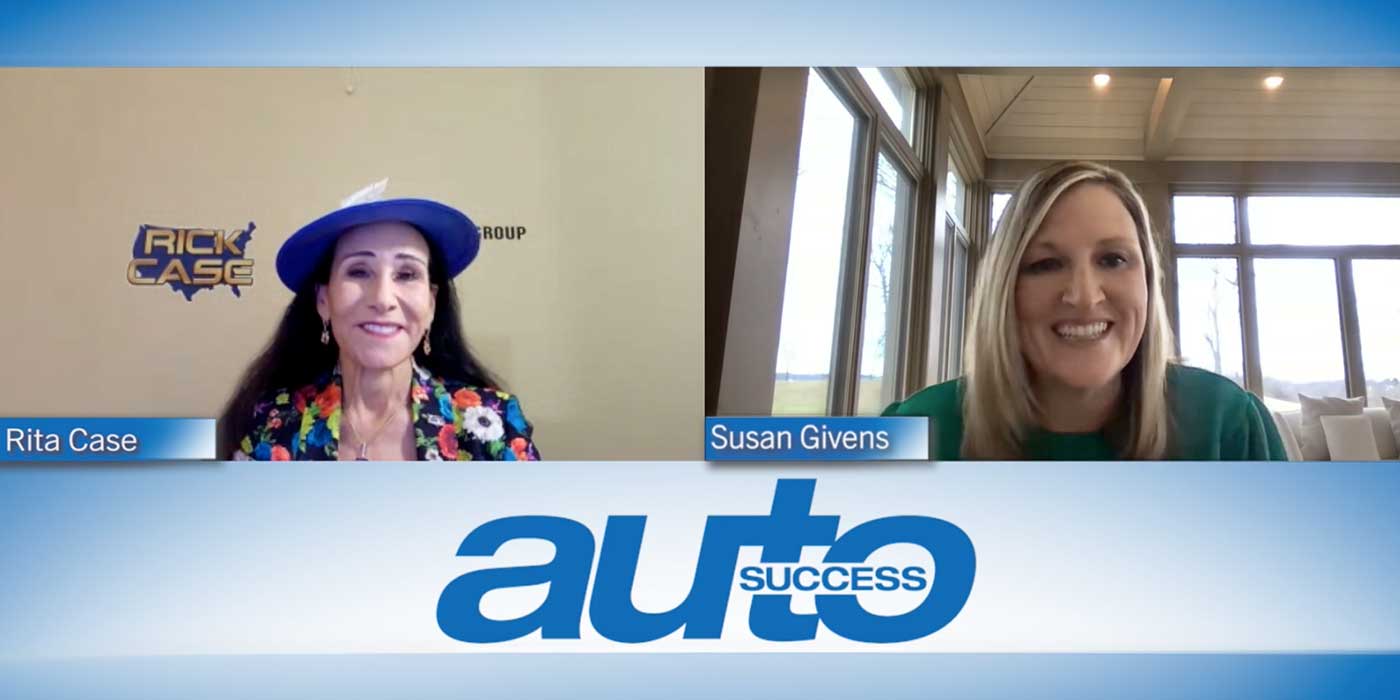Put yourself in your team’s position for a second. Think about everyone you’ve worked for with the word “manager” or “director” in their title. Now think about those who have had the most significant impact on your professional and personal life.
Take that list and whittle it down more. You’ll begin to see which were finite relationships and which still have an impact on your thoughts, processes and performance today. If your employees go through that same exercise and can identify your relationship as the latter, the mentor relationship has taken shape.
Looking at my career path in life, I appreciate every piece of encouragement/support/knowledge/harsh criticism that my mentor Tom Moore provides. A mutual friend introduced me to Tom, who then hired me to be the financial director at his dealership in Florida. Tom was — and still is — a tough leader whose unwavering focus on results resonates with me to this day. As the auto industry transforms, Tom continually reinvents himself along with the business.
Ask 50 people what a mentor is, and you’ll get 50 different answers. Ask that same group of people what makes a great mentor and the answers will be just as varied. Somewhere along the way, we’ve managed to separate the mentor role from our daily interactions with leadership. For me, one does not exist without the other.
Can you be even a “good” leader and not a mentor? Probably.
Good leaders steer their employees toward accomplishing the dealership’s immediate goals; great leaders establish clear growth plans and coach employees along the path to individual and team successes. Great leaders mentor for the long term — they view themselves as a resource for life. Great leaders excel at fostering bonds with associates who appreciate knowledge and guidance by an industry veteran.
So how do you go from being a good leader to a great mentor?
1. Mentorship starts with the hiring process. Finding candidates with the potential to become the next generation of leaders in your organization begins with a solid interview process. Stop choosing candidates solely for their previous experience and instead structure your interviews to identify candidates with the passion and drive to excel. After all, job skills and tasks can be taught — character cannot.
While the in-depth nature of the mentor relationship may not be clear from the beginning, the desire to make the time to help someone else’s career develop does. Great leaders understand the mentor relationship is a true commitment. It’s an investment of time, money and even emotional resources. Hire someone who values feedback and appreciates opportunities for career development. Setting boundaries early is crucial to keeping your commitment to that employee, to the team and to your own goals.
2. Great leaders/mentors bring experience beyond teaching. Teaching a task is managing. Encouraging and helping your team to sharpen their reasoning skills shows excellent leadership. Because the mentor relationship is a long-term connection, the kind of feedback and assistance you provide will shift from the “how do I do x-y-z” to helping that employee find their voice and hone their conceptual knowledge and philosophies for the future.
3. Great mentors/leaders live a “pay it forward” life. I think about my friend Jim Ziegler who lives and breathes “pay it forward” every day. “Good” leaders are okay with their teams meeting the goal currently before them. Great leaders establish what success looks like for their dealership as a whole, and for the individual. Great leaders want their employees to achieve greater success than their own. If your payoff for being a mentor centers only on what that employee can do for you today, your vision is shortsighted. That’s no way to achieve the deep leadership bench needed to solidify the longevity of your dealership.
4. Great leaders realize the relationship is a two-way street. “Good” leaders often have difficulty admitting they don’t have all the answers. Great mentors seize the opportunity to learn from their employees, and in turn, reflect and improve upon their own techniques as they teach. When I look at adding to my own team, I think about the knowledge the hire will bring to the table to help us achieve our ultimate goals. If the people you hire share the same character, vision for your culture and the ability to produce, then the value of what your employees can teach you is intrinsic.
I didn’t necessarily mull over the question, “Who do I want as a mentor?” Tom made himself the obvious choice because of the success he had achieved. I just knew that if anyone could help clarify what I wanted to do and how to get there, it was Tom. Over the years, our conversations have changed from teaching a task to discussions of a more philosophical nature. Much of who I am as a leader came directly from the guidance given by great leaders like Tom along my career path.
Lots of good mentor relationships, while well intentioned, go nowhere. Great relationships weather exterior changes and adapt beyond the environment which drew you to your employee in the first place. As a great leader, never lose sight of the compass that guides your goals as a mentor. Make sure you remain worthy of someone’s trust, time and even the knowledge they can share with you so that you remain true to your own professional leadership goals.
Bill Wittenmyer













